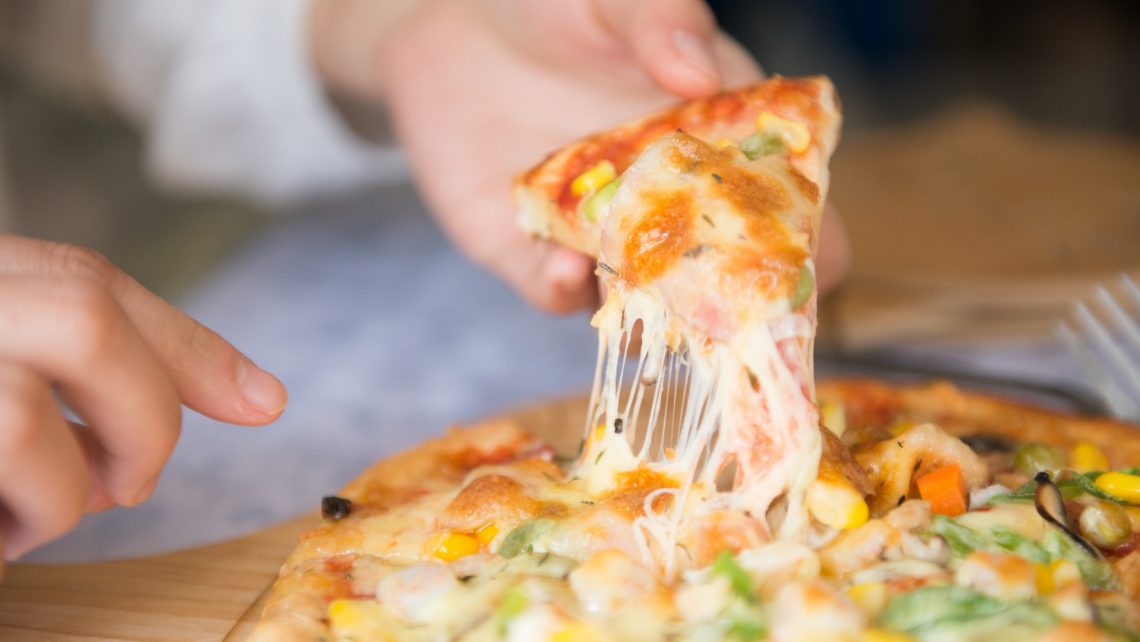Dinner lands at a strategic point in the day. For most people, the evening meal caps a day of work, school, living on the run, stress, and demands from all sides. Whatever the mix, by the time you’re rounding the bend to sitting down to eat, most people need a long pause, a quiet “aaaahhhh” to decompress and actually be able to enjoy a few minutes to eat and catch up with family or friends.
I’ve been there, many times. I know the challenges that come with the mix of ages, moods, weariness, maturity, and schedules. I know it’s not easy to have a meaningful pause in the day, and sometimes, especially with little ones, you just want to make it through the meal without spills, tears, or tantrums.
These are strategies you can use to set the stage for the mood you want. With time and practice, you can nurture a tradition of coming together, even for a few minutes, pausing for meaningful engagement as you eat. Give yourselves time to connect at the appropriate age level, then end your dinner time with a brief acknowledgement of completion.
The positive inclusion of ritual, respect, and habit combine to make dinner simple in tone, but memorable as your routine takes shape. You can customize these suggestions to fit your situation.
- Plan to eat together as a family as regularly as possible. If you have to sacrifice other things, do that. For most people, dinner time is the one meal of the day when family can reliably gather. If work schedules don’t cooperate for your family, choose another time for your meal of the day. But try to make it happen as many times a week as possible. There’s something very powerful about gathering to eat.
- Begin your meals with some form of thankfulness. Whether this is a formal prayer of thanks or a simple statement of gratitude, you accomplish many things with this ritual. You teach your children to be appreciative for their food and sustenance; you create an automatic “start” time for everyone to begin eating; and you establish a family tradition of gratitude and acknowledgement.
- A great conversation starter, and follow-up to the practice of thankfulness, is to have everyone at the table share something good that happened to them during the day. It’s ok to share the negatives too, but try to find something good to celebrate, even when life is difficult. Children need encouragement to see the positives, to realize life is full of ups and downs. Encourage a hopeful narrative as much as possible while you acknowledge difficulties too. Validate both good and bad experiences.
- Create an expectation at your table of politeness (manners), calm, and at least a minimal level of participation. This is easy to say, difficult to do. Don’t focus on making this happen 100% of the time. That’s not possible, especially with young kids. Instead, focus on being consistent. If you’re consistent 70-80% of the time, you’ll have a pretty good dinner experience most evenings. For those evenings that don’t go well, just chalk it up to life and let it go. Don’t let a less-than optimal dinner be a ruined evening, or another thing to feel guilt about.
- Use dinner time for celebrations when special events occur: birthdays, anniversaries, school or work achievements, or other situations you want to honor. Please, please, don’t use your meal time together for scolding, yelling, arguing, or other forms of discipline or disagreement. If you can’t talk together politely, just eat quietly. That’s better than creating memories of anger and raised voices. Try to make silent dinners the exception, not the rule. The great value of coming together for a meal is the time to interact on a regular basis. Use it!
- Encourage family members to bring creativity to the table. What do you or your children want to celebrate at meal time? Are there family or cultural traditions you want to incorporate? Perhaps you allow each person in the family to take the lead on a different night. You could play word games; share a favorite family story or memory; play a guessing game; list your favorite movie, book, food, sport, etc., and tell why; share ideas for your next vacation, or a fantasy vacation…”if I could go anywhere, I would go…” The list is endless!
- Choose a simple way to end your dinner time together. Have your children ask to be excused, acknowledge they enjoyed the meal, or whatever you want to signal to everyone that the meal is ended. When you do this, you teach children to respect the experience of dinner. It doesn’t have to be fancy to deserve respect. You’re not elevating the food as much as your time together.
- Finally, please understand, especially if your family includes young children, you are building a tradition and heritage, so expect that these habits / rituals will take time to nurture. Eventually, if you persist, your family will automatically follow the dinner traditions you’ve put in place. If you haven’t had rituals at your family dinners, it’s never too late to start. Talk about what you want with your family, and why, and begin. Set expectations, keep trying, and look for your evenings to become more enjoyable!
I’d love to know how you make your meals memorable. Please share?
~ Sheila

Leave a Comment